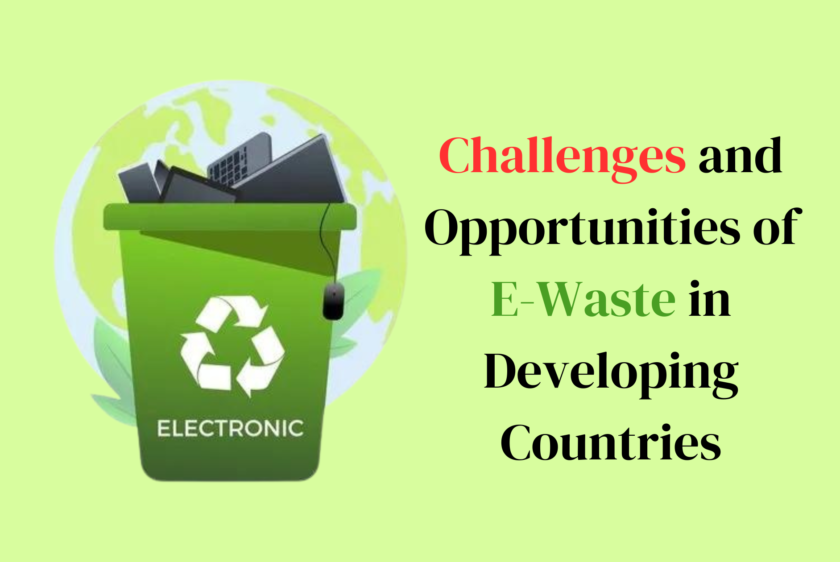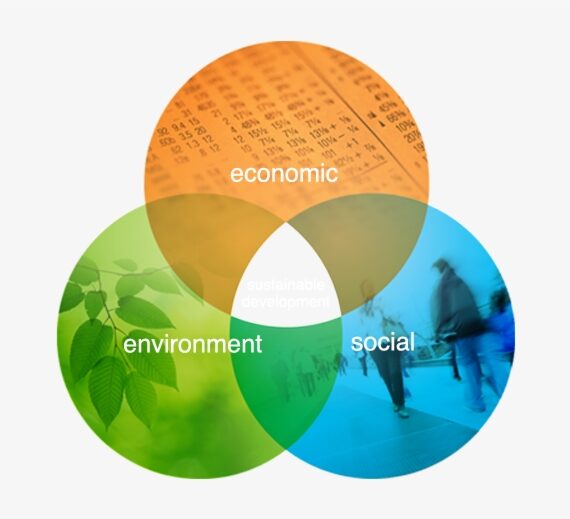
Challenges and Opportunities of E-Waste in Developing Countries
Electronic waste, or e-waste, has become a pressing global issue with far-reaching consequences. The complex nature of e-waste in developing countries brings forth a host of challenges and opportunities that demand careful examination. This blog sheds light on the environmental, social, and economic dimensions of e-waste in these regions, exploring the problems faced by communities, governments, and the environment. Additionally, we will discuss potential solutions and opportunities for sustainable development in the electronic waste management sector.
Environmental And Economic Challenges:

1. Toxic Contamination: Improper disposal and inadequate recycling of electronic waste can result in hazardous substances like lead, mercury, and cadmium being released into the environment, posing a serious danger to soil and water quality.
2. Air Pollution: Burning or dismantling electronic components can release harmful fumes into the air, adding to air pollution and causing respiratory problems for nearby communities.
3. Resource Depletion: E-waste contains valuable resources, including rare metals and minerals. Inadequate recycling processes result in the loss of these resources and worsen the strain on natural ecosystems.
4. Resource Drain: E-waste mismanagement results in the loss of valuable resources that could be recovered and reused, impacting countries’ economic potential.
5. Missed Economic Opportunities: Developing countries often miss out on the economic opportunities associated with proper e-waste recycling, including job creation, resource recovery, and the development of a circular economy.
Social Challenges:
1. Health Risks: Informal e-waste recycling often involves manual dismantling without proper protective measures. This exposes workers, often marginalized communities, to health risks associated with handling hazardous materials.
2. Digital Divide: The disposal of outdated electronic devices contributes to the digital divide as wealthier nations discard still-functional equipment, leaving developing countries with outdated technology.
3. Informal Economy: The prevalence of informal e-waste recycling, driven by economic necessity, leads to exploitative practices, inadequate working conditions, and limited access to social security for workers.
Sustainable Solutions and Opportunities:
1. Regulatory Frameworks: Implementing and enforcing stringent e-waste regulations is crucial. Governments should establish and enforce policies for proper disposal, recycling, and the responsible management of electronic waste.
2. Formalized Recycling Infrastructure: Investing in formalized e-waste recycling infrastructure can provide safer working conditions, reduce environmental impact, and create job opportunities within a regulated industry.
3. Public Awareness and Education: Raising public awareness about the environmental and health effects of improper e-waste disposal is essential. Educational programs can promote responsible consumer behavior and support sustainable practices.
4. Circular Economy Initiatives: Encouraging a circular economy approach involves designing products for longevity, repairability, and recyclability. This shift can reduce the generation of e-waste and promote sustainable consumption.
5. International Collaboration: Addressing the global nature of e-waste requires international collaboration. Developed nations can assist developing countries in implementing effective e-waste management strategies and sharing knowledge and resources.
Conclusion:
The challenges posed by electronic waste in developing countries are significant, affecting the environment, society, and the economy. However, within these challenges lie opportunities for positive change. By embracing sustainable solutions, fostering international collaboration, and prioritizing responsible e-waste management practices, developing countries can transform the electronic waste landscape into a catalyst for environmentally friendly, socially just, and economically viable development.
Follow Us:







